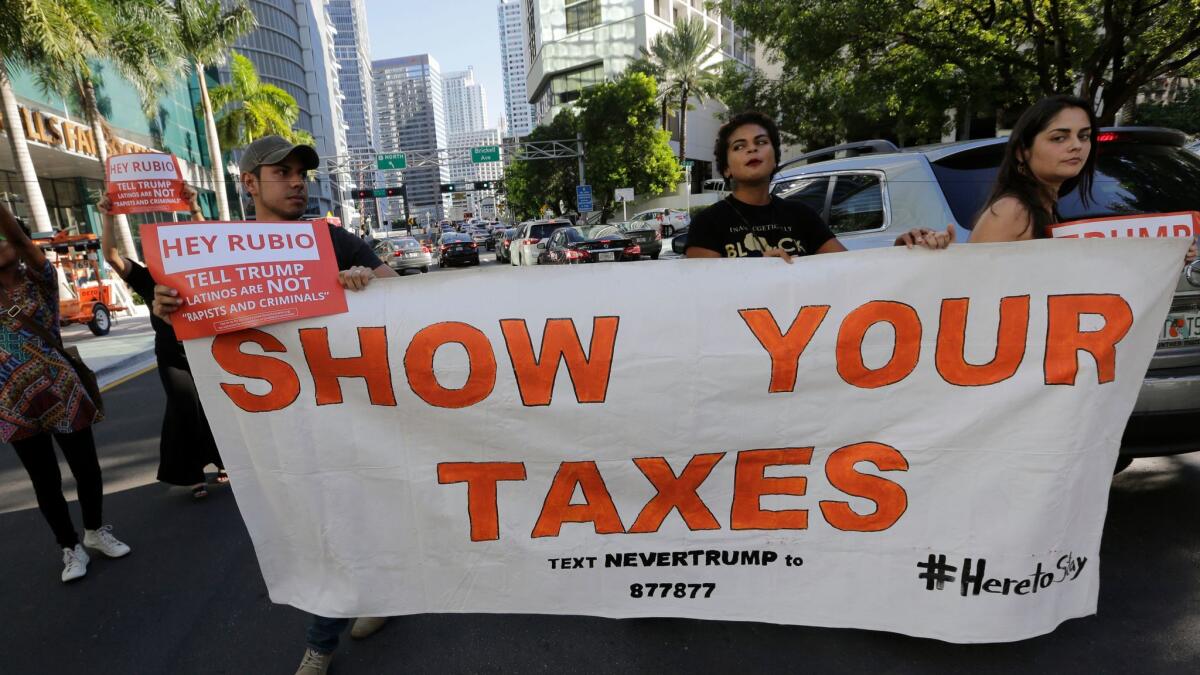California’s presidential tax return law was shot down in court. Good. Let’s move on

- Share via
Predictably, California lost its fight to force President Trump to disclose his tax returns.
On Thursday, the California Supreme Court rejected the Presidential Tax Transparency and Accountability Act, a questionable new law that required presidential candidates to release five years of tax returns in order to be included on the state’s primary ballot. The court held that the act, which Gov. Gavin Newsom signed into law July 30, violated the state Constitution. This was the law’s second legal defeat in as many months. A federal judge ruled in October that the law violated the U.S. Constitution in at least four ways, and other federal laws to boot.
In light of the latest ruling, California’s top elections official says he will drop his appeal of the federal judge’s order blocking the law from going into effect. It’s the right decision, and we hope it puts to rest efforts to pass similar laws in other states. Enough time and public resources have been wasted on a ballot battle that has accomplished only one thing: giving Trump more ammunition against the state he loves to mock.
To be clear, we believe the public should see Trump’s tax returns, and the fact he won’t share them only raises suspicions that he’s hiding something. And if the U.S. Supreme Court blesses efforts by the House Ways and Means Committee and Manhattan Dist. Atty. Cyrus Vance Jr. to force Trump’s bookkeepers to turn over the tax records they subpoenaed, that would be a boon for congressional oversight and for states’ ability to enforce their laws, at the very least. But as we have said many times, disclosure should not be enshrined in state law as a prerequisite for ballot access. It should be left to voters to demand disclosure from presidential candidates and then punish those who won’t comply.
And no matter what lofty ideals the law’s supporters claimed to have been upholding, we know that it was primarily a political statement directed at Trump, who broke with modern norms by refusing to release his returns during the campaign.
In the unanimous decision issued Thursday, the state’s high court ruled that adding new disclosure requirements is a violation of a voter-approved amendment to the state Constitution that made it easier for presidential candidates to get on the state ballot. The outcome was unsurprising, given the skeptical tenor of the comments and questions from justices during a hearing this month on the legal challenges to the law. “Where does it end?” Justice Ming W. Chin asked. “Do we get all high school report cards?”
That was exactly the point that former Gov. Jerry Brown made when he vetoed an earlier version of the law in 2017. And he was right.
More to Read
A cure for the common opinion
Get thought-provoking perspectives with our weekly newsletter.
You may occasionally receive promotional content from the Los Angeles Times.






